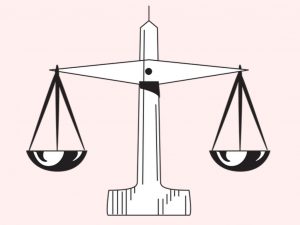The differences Between Arbitration And Litigation: If you are a company owner who is involved in a disagreement with a customer, vendor, or rival, you have the option of settling the matter in court or submitting it to arbitration. Either method can assist you in resolving a quarrel with a business partner or a conflict with an employee. However, each procedure has advantages and disadvantages that should be examined and considered before incorporating either option as the default for dispute resolution into your commercial agreements.
The parties can determine ahead of time, using the “dispute resolution” clause, that any potential legal problems arising between them connected to the contract must be resolved by arbitration. Except under restricted situations, the parties can not bring litigation against each other once they have agreed to do so. This is because arbitration clauses in contracts are often enforced by courts when the parties have freely consented to them.

Recommended: How to Argue and think like a lawyer
If a language in your contractual agreements directs conflicts to arbitration or litigation, both parties will almost certainly be compelled to take that course of action, unless specific conditions apply. However, you should carefully examine whether you want disagreements to be resolved in a courtroom or a boardroom. We’ve all seen movies in which a large corporation is at odds with its client. You learn that they normally resolve it behind closed doors, each with their lawyer, and that they always try to settle the situation, but that if they are unable to do so, the matter rises to a major court case with media attention.
Have you ever wondered why, rather than going to court, they usually meet in private to attempt to settle their differences? Or do you have a hunch about what it may mean? This article will help you gain a better understanding of the differences between arbitration and litigation, the two most common legal procedures for resolving disagreements or disputes.
Recommended: Advantages and Disadvantages of Alternative Dispute Resolution (ADR)
Definition of Arbitration
Arbitration is a private process in which both conflicting parties agree that a neutral third party, known as an arbitrator, will provide a binding ruling. It’s an example of alternative dispute resolution or a method of resolving a disagreement that isn’t as official as filing a lawsuit and appearing in court. In most circumstances, the arbitrator is a lawyer with expertise in the subject matter. Both parties are legally bound by the arbitrator’s judgment, albeit it can be reversed in some situations.

The parties involved in the dispute benefit from arbitration because of their faith in the arbitrators; the secrecy of the information; the speed with which the solution is adopted; the cheap court fees; and the prospect of worldwide acceptance of arbitration rulings.
Arbitrators are seen to be a beneficial tool for resolving disputes that arise from economic transactions involving products and services in a timely and equitable manner.
Also see: Advantages and Disadvantages of Tribunal over court system
What Exactly Is Litigation?
The phrase “Litigation” refers to going to court to resolve a disagreement. Litigation is a means of resolving a disagreement between two parties by taking it to court for a decision. It is a legal action brought by competing parties to enforce or defend a legal right. The case is brought to court, and the judge (who is designated by the court to function as the litigator) renders a decision on the subject after evaluating all of the arguments, evidence, and facts offered by the parties’ lawyers.

The court has a specific and formal system for resolving the dispute between the parties, but if the outcome is unsatisfactory, the parties can always appeal to a higher court. Unfortunately, due to the rigidity and high expense of litigation, parties may resort to arbitration.
Also see: Countries with the best education system in the world 2024
Top 9 Differences Between Arbitration And Litigation
1. Definition: Arbitration is a quasi-process in which a neutral third party is appointed to resolve disagreements between parties. On the other hand, litigation is a formal legal process in which disputing parties go to court to settle their disputes.
2. Influenced By: An arbitrator is chosen by the parties. While under limitation, a judge is appointed by the court.
3. The Value Of: Arbitration is frequently less expensive than litigation since discovery is usually limited, resulting in fewer opportunity costs for the parties involved. Additionally, there are fewer papers to prepare and react to, as well as fewer hearings.
Litigation is costly. Throughout the litigation, lawyers must create and react to countless court papers. Expert witnesses must be hired. They frequently need to hire outside experts to help them process the papers that were shared during discovery. In most contractual disputes, the parties to the disagreement are responsible for these costs, as well as, of course, the time spent by their attorneys.

Also see: Countries with the best justice system in the world 2024
4. Finishing: Arbitration judgments are generally final and binding in most cases. This is true even if the arbitrator’s result contradicts legal precedent or if they made a mistake in rendering judgment.
Obtaining a judgment as a result of a jury verdict or a judge’s decision is not necessarily the end of the road in litigation. Any or both parties may appeal the trial court’s or jury’s ruling.
5. Methodologies: Arbitration is a far less formal process than a judicial case. Arbitration is less formal than litigation, not just in its physical environment but also in its processes, which means that arbitrators are not required to follow precedent or omit evidence.
Judges are bound in litigation by the standards of evidence and, of course, precedent-based on earlier instances. This ensures that judges do not substitute their judgments of what is fair and just for what the law allows or demands, and it encourages reasonably consistent conclusions in similar cases.
Also see: Advantages and Disadvantages of being a teacher
6. Process Time: The arbitration procedure is rather rapid. The case can be heard immediately when an arbitrator is appointed. In civil litigation, on the other hand, a matter must wait until the court has time to hear it; this might take months or even years.
7. Expertise: Arbitrators are chosen from a pool of specialists, often with experience in the construction sector, and may therefore have a higher degree of competence than judges. Such individuals should be able to grasp project difficulties and paperwork as well as evaluate liability and damage claims typical in the construction sector better than most trial judges.
Recommended: 5 Major Stages of Conflict Explained
8. Making a Decision: Because arbitrators are aware that their rulings are usually final and binding, they give the parties considerable latitude in modifying their claims and arguments. Furthermore, for the same reason, they frequently dislike disposing of part or all of a dispute before the final arbitration session.
Judges, on the other hand, are often more disposed to make those sorts of judgments and reject claims as quickly as feasible during litigation. Finally, the arbitrator’s hesitation may cause parties to wait longer and spend more money to obtain a verdict.
9. Confidentiality: Arbitration processes are not accessible to the public, and because the hearing is performed by the parties’ agreement, the parties can, and frequently do, agree to keep the whole arbitration and all relevant information and documents secret.
Court proceedings, on the other hand, cannot be kept secret from the general public and may include time-consuming processes to guarantee that confidential information and documents about the parties’ dispute are accessible to the court but not to the general public.

Also see: A day in the life of a lawyer explained in details
Conclusion
As their contrasts show, both arbitration and litigation have advantages and disadvantages. The preference is determined by the kind of business relationship at issue, the type of disagreement that is likely to develop, and, most crucially, the interests, priorities, and goals of your organization. Consult with your attorneys before merely skipping over the dispute resolution section to discover the best option for you.

Edeh Samuel Chukwuemeka, ACMC, is a lawyer and a certified mediator/conciliator in Nigeria. He is also a developer with knowledge in various programming languages. Samuel is determined to leverage his skills in technology, SEO, and legal practice to revolutionize the legal profession worldwide by creating web and mobile applications that simplify legal research. Sam is also passionate about educating and providing valuable information to people.